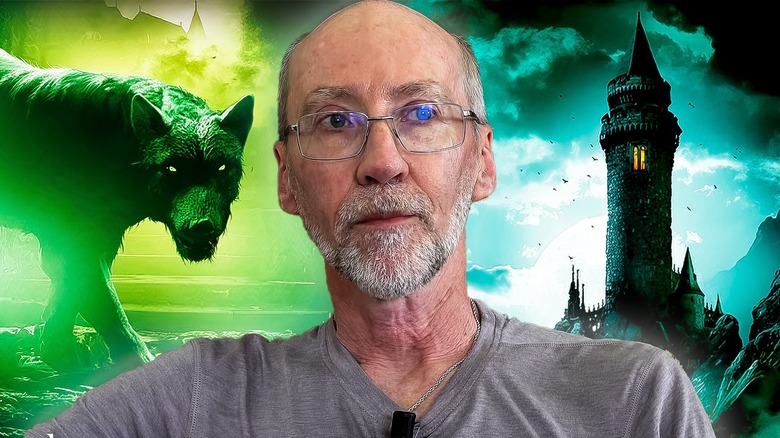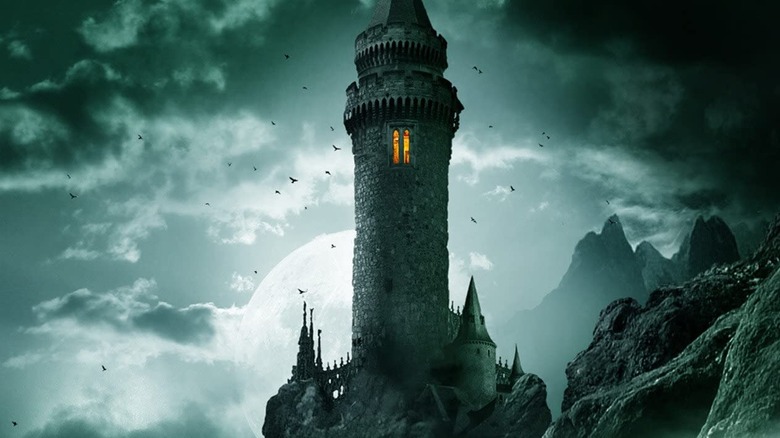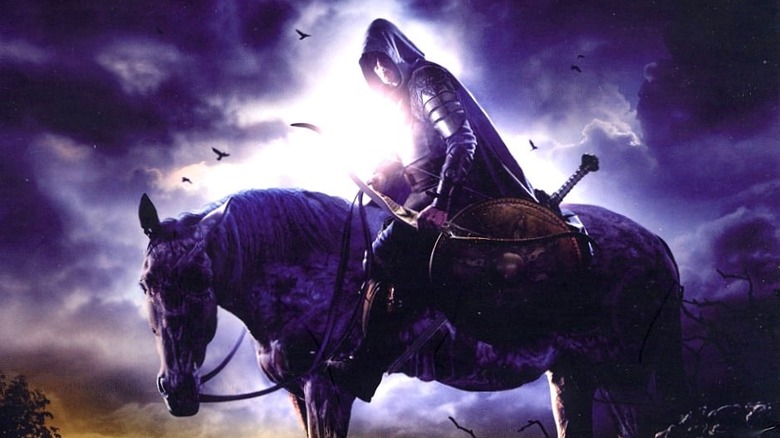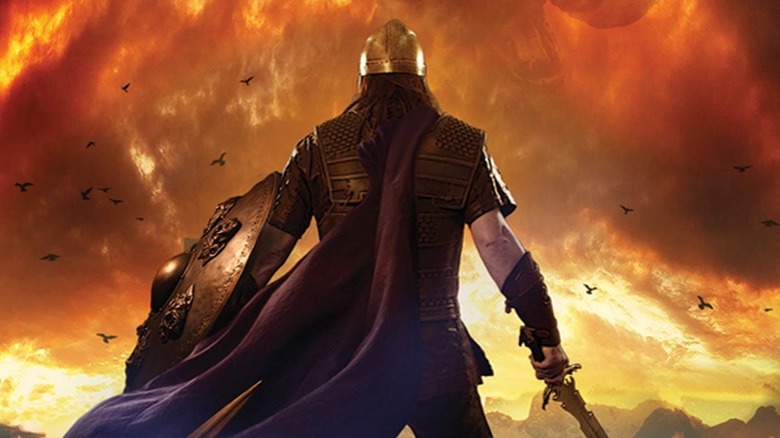Fantasy Fans Are All Waiting For A Major Studio To Tackle The Malazan Series (But There Be Dragons)
In 2011, "Game of Thrones" paved the way for a golden age of complex, big-budget fantasy fare on the screen. This trend has since grown to include shows like "House of the Dragon," "The Lord of the Rings: The Rings of Power," "The Witcher," and "The Wheel of Time." Ray Feist's "Riftwar Cycle" might be happening as well, suggesting that even the most daunting and ambitious titles aren't off the table when it comes to adaptations. That can only bode well for something like "Malazan," but will it ever happen?
Adapting the "Malazan" books is a surefire way to make some poor screenwriter's head explode. The series follows hundreds of characters from various continents, and events take place over thousands of years. Magic is everywhere, dragons exist, and the political systems are complicated. Authors Steven Erikson ("Malazan: Book of the Fallen," "Kharkanas Trilogy," "Witness Trilogy") and Ian Cameron Esslemont ("Novels of the Malazan Empire," "Path to Ascendency") share the writing duties, and they aren't always interested in following linear plots. This makes the "Malazan" series a truly riveting read, but that doesn't guarantee success on the screen.
The "Malazan" saga is as ambitious as fantasy storytelling gets, and adaptations of simpler fantasy stories are among the most expensive movies and TV shows on the market. Current trends indicate that a potential "Malazan" adaptation would be live-action, but that might not do it justice. Hollywood is too scared to give this one the "Game of Thrones" treatment, but that's fine, as "Malazan" would be better as an adult animation series.
The world is the main character in the Malazan series
The "Malazan" series is impossible to explain succinctly, but here's a general rundown. The stories take place in the titular empire, which encompasses various continents with their own distinct cultures, creatures, magic, and histories. Broadly speaking, the series examines the conflicts that the Malazan Empire is embroiled in all over the world, but there's another overarching storyline about a god with a propensity for causing trouble.
Steven Erikson's "Malazan: Book of the Fallen" saga is made up of 10 books, many of which entail standalone stories about the world's myriad of heroes, villains, gods, and conflicts. For example, "Gardens of the Moon" documents the various struggles for power in the city of Darujhistan, while "Midnight Tides" takes place on a continent known as Lether that boasts hostile relations between tribes and the continent's Empire.
Ian Esslemont's contributions to the series adopt a similar fondness for scattered storytelling. The stories in his main series, "Novels of the Empire," run concurrently with some of the events depicted in Erikson's works, but they serve to expand the lore. The authors are interested in telling the story of a whole world, as opposed to chronicling the journeys of a select few protagonists. There are numerous individual stories that could inspire great live-action movies and TV shows, but this series would require an entire cinematic universe, and those cost a lot of money.
Malazan is too daunting for the live-action medium
Steven Erikson and Ian C. Esslemont originally conceived the "Malazan" universe as a backdrop for a tabletop fantasy role-playing game. However, the idea was later repurposed as a screenplay for an unproduced movie called "Gardens of the Moon," which eventually became Erikson's first novel in the series. Erikson also confirmed that a television series was in the works at one point, but it never came to fruition in the end. Still, it's evident that the authors have always had cinematic goals for the series, but their beast might be too big at this point.
To do the "Malazan" books any justice as a live-action universe, one would need to commit to multiple movies or shows, and dense genre fare isn't exactly ruling the current blockbuster landscape. Granted, "Dune" and the films of Christopher Nolan prove that heady blockbusters can be successful, but those are very rare exceptions in a cinematic climate that's averse to taking risks.
"Malazan" would work better as a TV series, especially due to the popularity of thought-provoking dark fantasy shows on the small screen. But a live-action series would still require a serious financial commitment, which might not be feasible for such an ambitious property. Put it this way: an average episode of "House of the Dragon" costs just under $20 million, and the otherworldly elements, such as dragons, aren't the main focus. "Malazan" is way more fantastical than the popular HBO series, so the production costs would be through the roof.
Adult animation is the best medium for Malazan
While the "Malazan" books are heady philosophical affairs at times, they still feature lots of epic battles, magical showdowns, gods, shapeshifters, dragons, and creatures. Animation is the ideal medium for bringing these concepts to life, as it's only really limited by the creators' imaginations. Live-action storytelling has other benefits, sure, but it's also very dependent on the mercy of external variables, such as finding suitable locations, agreeable weather conditions, and budgets.
"Malazan" is a series with lofty ambitions, but animation can realize grandiose ideas for a discount price. For example, "Attack on Titan" was reported to cost $150,000 per episode, making it one of the more expensive adult animated series out there — still, that's very low compared to live-action fantasies like "Game of Thrones" and "The Rings of Power." Furthermore, adaptations of dark, niche fantasy properties have also enjoyed some success in the animated realm lately, as evidenced by Netflix's "Castlevania."
A true "Malazan" adaptation would need time to tell its stories fully, but animation has been a good medium for long-running franchises in the past. Furthermore, streaming services such as Netflix and Amazon have poured billions of dollars into adult-oriented animated projects in recent years, so now is arguably the perfect time to take a chance on a long-running "Malazan" series (assuming that streaming services are still interested in sticking with shows for the long-term).



